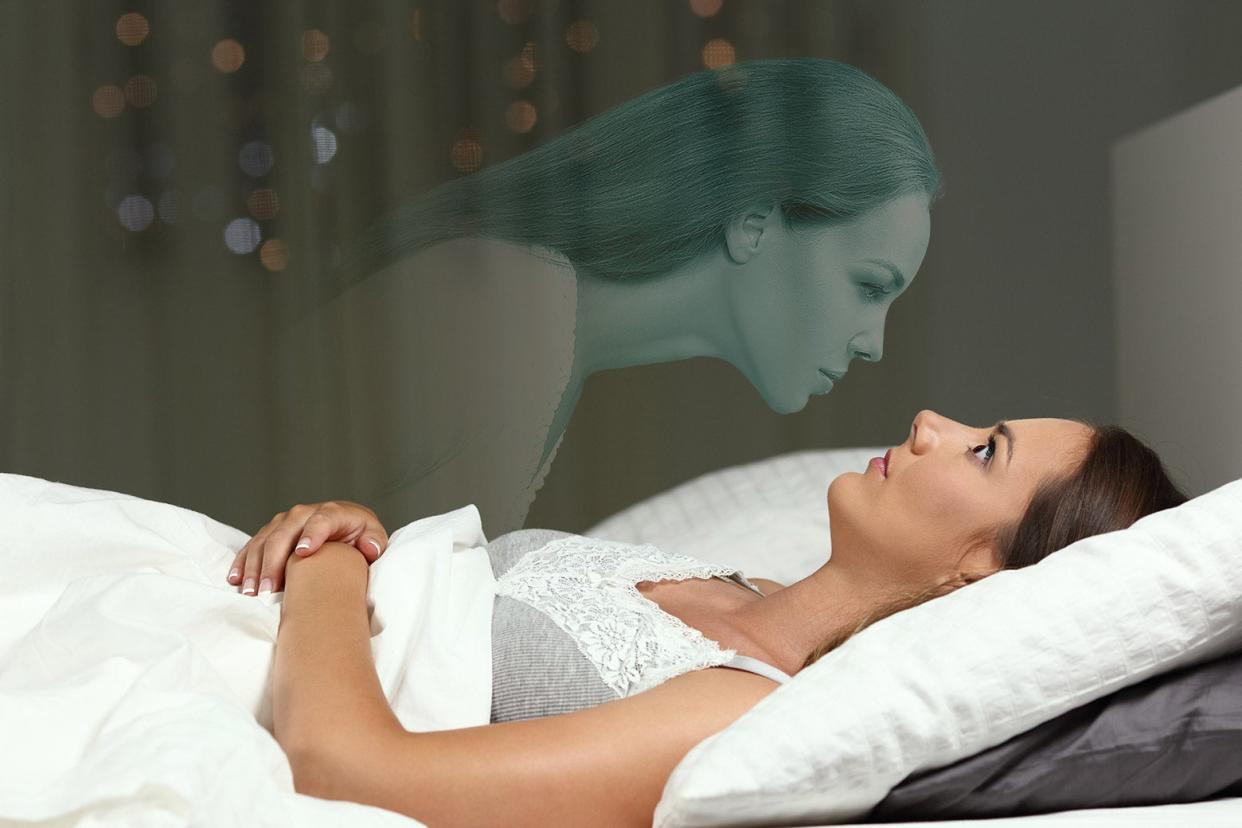More Than Half of Americans Surveyed Say They Have Been Visited by a Ghost

A lot of Americans say they’ve been visited by the dead. That’s the finding from a Pew survey published in August, in which more than half of about 5,000 Americans polled said they had at some point in their lives been visited by a deceased family member, sometimes in a dream or other ethereal form.
This might not come as such a surprise. According to several researchers who study Americans’ beliefs, studies and polls and surveys consistently find that significant numbers of Americans say they have had—or felt that they have had—supernatural experiences.
Such experiences vary widely by person, though. The most recent Pew study asked pretty broad questions, including: Have you ever felt that a family member who is dead has come to visit you in a dream, or has come to be with you in any other form? Have you felt the presence of a family member who is dead? Have family members who are dead communicated with you?
The people who answered this survey did not explain what they meant when they said they had been “visited” by the deceased, so specific conclusions are limited. But it is safe to say that the American public is full of believers. And that goes for plenty of people who are not religious.
There were some interesting variations among different demographics of Americans in this study. Most dramatically, the survey found that women were significantly more likely than men to say they had been “visited” by the dead. To Joseph Baker, a professor at East Tennessee State University who has studied paranormal subcultures, this made sense given the specific kinds of experiences the survey was asking about. In general, Baker said, women tend to be more open to the kinds of supernatural beliefs that slot into what he calls the “enlightenment category”—meaning, the kind of supernatural experiences that help the believer get insight into their own life and relationships. “Women are more likely to be socialized into prioritizing relationships,” he said. Men, on the other hand, tend to be the ones most interested in what could be seen as a more conventionally masculine “discovery” side of the supernatural, including the hunt for Bigfoot, for example.
There are also some interesting connections between religion and the belief in visitation. The survey found that Catholics and members of historically Black churches were quite a bit more likely to report visits from dead relatives: some 66 and 67 percent, respectively. (Only around 42 percent of Evangelical Protestants gave similar responses.) This makes some cultural sense, particularly given the tendency of colonized cultures to incorporate their folk practices into their local form of Catholicism. The Catholic church also actively encourages its members to pray to saints and pray for dead relatives, and it does not have any official teaching against the idea of ghosts.
On the phone, Stanford University’s T.M. Lehrmann noted that Black Protestant churches in general tend to be more charismatic than their white counterparts—meaning, more welcoming of the more vivid experiences associated with gifts of the Holy Spirit, such as speaking in tongues, and therefore more open to the possibility of supernatural experiences.
“Those can be much more spiritually infused traditions,” Baker said of the traditions of Catholicism and Black Protestant churches. “Most Protestantism is trying to banish the supernaturalism.”
As one might expect, atheists tended not to believe they’d been visited by a deceased loved one. (Only 12 percent of atheists reported feeling the presence of a dead family member, compared to 45 percent of members of historically Black churches.) But those who were “highly religious” were barely more likely than those who reported “low religious commitment” to report visitations.
Those who self-identified as “medium religious” were the most likely to believe in this kind of paranormal visitation.
Lehrmann has studied the hearing of voices and feeling of presences as part of spirituality. She speculated that one reason for this survey outcome could be that those belonging to a specific religious practice may have more of a solid idea of what beliefs they’re permitted to have. “And dead people are not among them,” she said.
Baker agreed with Lehrmann’s logic, but he also saw a bigger trend in that number. Sociologists have long noted that a huge and growing percentage of Americans do not identify with a specific religious tradition. But that trend line can be somewhat misleading.
Plenty of “religious ‘nones’ still believe in God, or fit into the ‘spiritual but not religious’ category,” he said. “As institutional, organized religion recedes, it’s being filled back in by a diffused supernaturalism.”
Lehrmann noted that in her research, she’s found some notable individual-level qualities that can make a huge difference. If a person thinks their mind is more likely to get “caught up in inner worlds,” and suspend disbelief, that person is more likely to have a paranormal experience. If they have some kind of spiritual practice, they’re more likely to experience something supernatural. If they think of their mind as something permeable, if they think that another entity can enter it—well, then another entity just might.
“Experiences like a certain dream, goosebumps, a thought in your mind—these are highly responsive to cultural expectations,” Lehrmann said. “And to the person’s expectations.”

